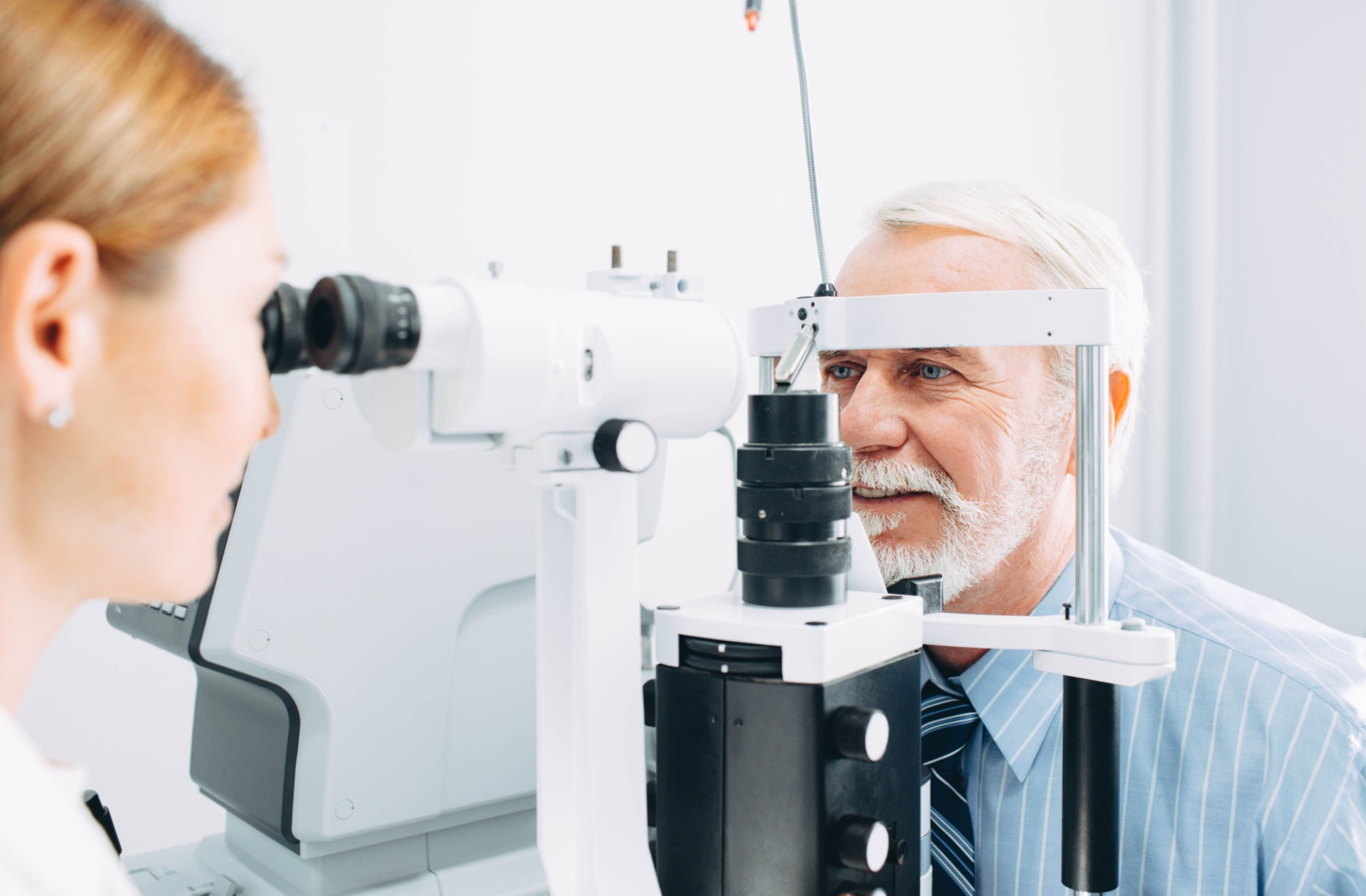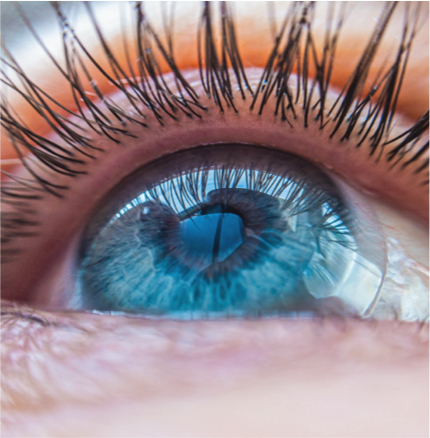Diabetes, a condition characterized by high blood glucose levels resulting from defects in insulin production, insulin action, or both, affects millions of individuals globally. What’s less known is that diabetes often first presents detectable signs within the small vessels and nerves of the eye.
Optometrists, being on the frontline of eye health, are in a unique position to improve vision and play a significant role in the early detection of diabetes. In your comprehensive eye exams, your optometrist can identify signs of diabetes in the blood vessels, the retina, and other ocular structures.
Through eye exams, your optometrist can direct you to your primary care physician for a formal diagnosis and management strategy that includes regular eye care.
Understanding Diabetes & Its Impact on Eye Health
If you have diabetes or have risk factors for it, eye exams are a critical first line of defense against adverse outcomes for your eyes. Diabetes can lead to a variety of eye conditions, including:
- Diabetic retinopathy: A common diabetic eye disease that affects the blood vessels in the retina and can result in total vision loss
- Diabetic macular edema (DME): A complication of diabetic retinopathy that can cause fluid to leak into the macula, the central part of the retina, affecting central vision
- Cataracts: Often develop at an earlier age in people with diabetes
- Glaucoma: A group of eye diseases that can damage the optic nerve, which are also more common in individuals with diabetes
What Is Diabetic Retinopathy?
When you have elevated or uncontrolled blood sugar, the retina can become damaged. As your body attempts to form new blood vessels to oxygenate the ocular tissue, the newer weak vessels can leak, leading to diabetic retinopathy.
The Role of Eye Exams in Diabetes Detection
Through various diagnostic tests, regular eye exams can detect the early signs of diabetes. One of the primary indicators of diabetes in the eye is the presence of retinal vessel abnormalities, which can be observed during a dilated eye exam.
Optometrists will often use tools such as:
- Retinal photography, which captures images of the back of the eye
- Optical coherence tomography (OCT), a noninvasive imaging technique that can detect subtle changes in the retinal layers
Identifying microaneurysms, hemorrhages, or lipid deposits in the retina can signal the presence of diabetes.

Benefits of Early Detection
Early detection of diabetes through eye exams can be life-changing. If diabetes is identified in its early stages, precautions can be taken to manage the condition through medication, diet, and lifestyle changes, significantly reducing the risk of vision loss associated with diabetic eye disease.
Further, detecting diabetes early can lead to better overall management of the condition, potentially averting more severe health complications associated with diabetes, such as:
- Heart disease
- Stroke
- Kidney disease
- Nerve damage
- Oral health problems
- Hearing loss
Preventive measures, such as controlling blood sugar levels, tend to be more effective when initiated early in the course of the disease. Timely interventions to prevent the progression of diabetic retinopathy are a vital cornerstone in reducing the health burden of diabetes.
Educating Patients on Diabetes & the Eyes
It’s essential for individuals who may not see their primary care physician regularly or who do not have established risk factors for diabetes to see an optometrist regularly. Providing thorough medical histories and consistently adhering to scheduled eye exams can lead to early detection and treatment of diabetes and other health conditions.
Screen for Diabetic Retinopathy & Eye Symptoms of Diabetes
The link between eye exams and the detection of diabetes is clear—optometrists can play a crucial role in identifying this widespread condition. By offering comprehensive eye exams that include a thorough review of medical history and retinal imaging, the optometrists at Hazleton, Stroudsburg, Pottsville & Nanticoke Eye Specialists can help patients stay one step ahead of diabetes and its potential complications. If you have pre-existing diabetes, annual eye exams are necessary to manage complications in your eyes. The presence of multiple risk factors requires more frequent eye care visits. Book your yearly eye exam to protect your eyes today.
























